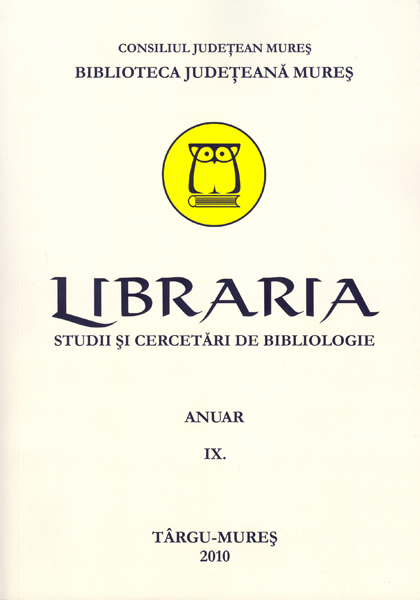Deschideri antropologice în opera lui Emil Cioran
Anthropological Openings in Emil Cioran’s Work
Author(s): Liliana MoldovanSubject(s): Philosophy, Review, Bibliography, Cultural Anthropology / Ethnology
Published by: Biblioteca Județeană Mureș
Keywords: Emil Cioran; philosophical anthropology; man case; despair; selfconfession; sadness; existence; madness;
Summary/Abstract: Cioran's relationship with the philosophical anthropology should be considered in the light of the idea that the Romanian thinker refused to become the founder of a philosophical system. Cioran has been a bitter enemy of the systematic way of thinking. He has considered that the technical language of systematic philosophy is secluded, vacant and devoided of existential deep. For this reason, his philosophical work has a strong and subjective impression and it stays under the sign of selfconfesion. His books are built within the enthusiasm and sadness of a moment and also of spontaneous judgments and explosive feelings. His philosophical conclusions are the result of his personal experience, interwoven with poetry of a serious and synthetic metaphysics, , which closes in a few words the essential truths exposed with a high honesty. Behind his philosophical sincerity, there is hiding a lot of suffering and the essays he wrote are designed within the enthusiasm or in a minute of despair. Cioran is distinguished from its congeners by the fact that he is the author of another kind of humanism. From this perspective, he has chosen the type of man „case,” which is a continuous quarrel with divinity. He chooses the fall, and during this fall, he modifies the reference systems: he is transforming suffering into joy and despair into vanity. The existential environment necessary for human existence consists of pain and disgust. In contrast, ordinary man is only melancholy, or slightly depressed. Sadness, despair and abandonment cause a „change of face,” which are also necessary steps on the road of slipping inwards. Unlike genuine people, poor people have a censorship of thoughts. Self-censorship prevents them from falling into despair, helps them to banish sorrow. For „human case,” however, „to think” is the equivalent of „to suffer.” Being on the position of the „human case”, Cioran confesses that he is not always sad, because sometimes he manages to censor his sadness. When he can not bear absolute sadness, he just stops his thoughts, he does no longer think to the sources of his delusions. Moreover, he admits that writing was for him a liberating source, a pleasant and effective therapeutic tool. Writing kept him away from madness, helped him to keep his innocence.
Journal: Libraria. Studii și cercetări de bibliologie
- Issue Year: IX/2010
- Issue No: 9
- Page Range: 208-216
- Page Count: 9
- Language: Romanian

